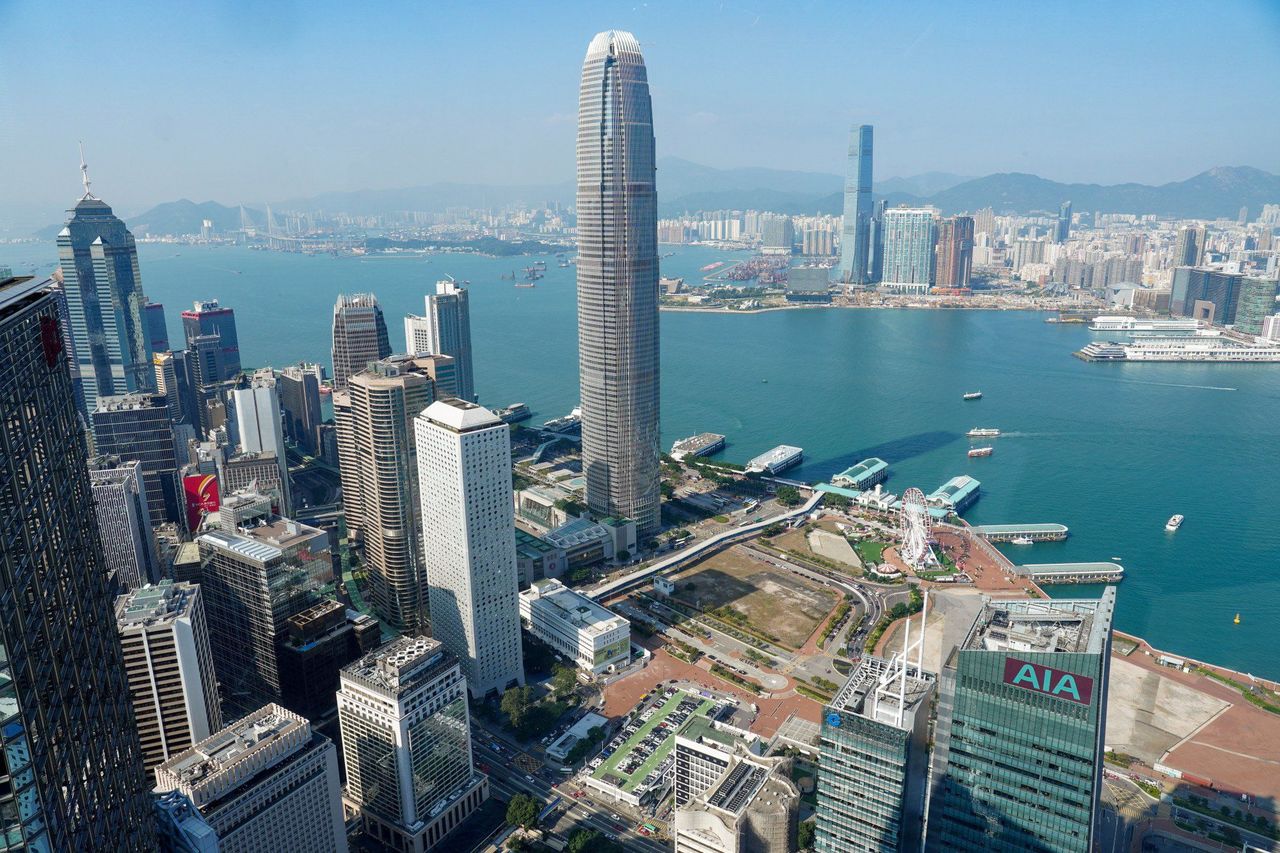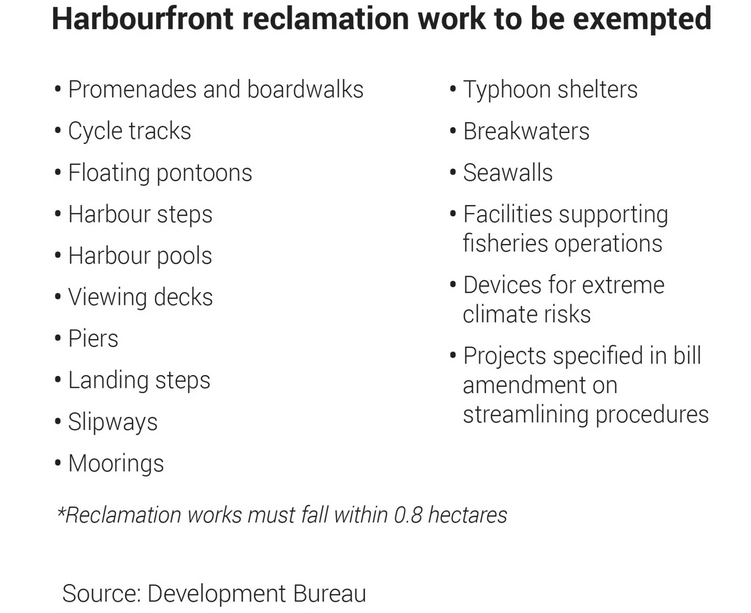Hong Kong News

Minor Hong Kong harbour work to be exempted from tough tests under law proposal
Victoria Harbour improvement work involving reclamation of less than 0.8 hectares (2 acres) will be exempted from a stringent “public need test” specified by Hong Kong law under amendments to be scrutinised by lawmakers next year.
The same exemption would apply to temporary reclamation of less than three hectares in place for under three years, but all works under the faster approval mechanism should go through public consultation and be approved by secretary-level officials, the Development Bureau said on Tuesday.
“More harbourfront improvement works can be launched. It can save a few years’ preparation time,” a bureau spokeswoman said.
She highlighted the building of boardwalks at the Kennedy Town promenade, as well as revitalised piers in Kowloon City and Kai Tak, as examples.
 Harbour reclamation was prohibited in 1997.
Harbour reclamation was prohibited in 1997.
Reclamation including building boardwalks was prohibited in 1997 under the Protection of the Harbour Ordinance.
The courts later ruled that projects with “overriding public need” and supported by “cogent and convincing materials” would be allowed.
The government initiated the law amendments as it had encountered difficulties in meeting the public need threshold for launching harbourfront projects.
Under the proposed amendments, only specified reclamation projects can be exempted from the public need test, but applicants still have to consult the advisory Harbourfront Commission and the appropriate district council.
Exempted improvement works include promenades, cycle tracks, harbour steps, piers and typhoon shelters.
Other projects will still be subject to the public need test as the government has no intention of reclaiming land in the harbour for development.

Under the existing ordinance, various departments can go ahead with their projects if the public need tests are passed without legal challenges. But under the amended law, all projects will need to be examined by the chief executive-in-council after public consultation.
The proposed bill will stipulate two months of public engagement on the projects. After that, applications have to be filed within five months to the chief executive-in-council.
But the bureau added government decisions could still face legal challenges from the public.
Asked if the government should find a third party to approve reclamation, the bureau spokeswoman said submitting applications to higher-ranking officials would strike a balance.
“We are aware of the need for checks and balances,” she said. “But we hope to loosen constraints for harbour enhancement projects.”
The spokeswoman added officials could add conditions to projects when asked if the amendments would benefit private developments and stop the public from enjoying the harbourfront.
“Some private construction can bring benefits to the harbourfront and the community … For example, we can consider asking the applicant to offer boat parking space at a cheaper rent for the public when one applies for building breakwaters,” she said.
The government said it planned to consult the Harbourfront Commission on the bill amendments later this month and would start a three-month public engagement in April.
The bureau added it aimed to submit the bill to the legislature in the first half of next year.
Commission member Winston Chu Ka-sun, vice-chairman of the Society for Protection of the Harbour, who initiated the ordinance in the 1990s, said the large-scale reclamation projects raised by the government in the future would be approved by the administration itself. “It is illogical,” he said.
 Winston Chu.
Winston Chu.
Liber Research Community, an NGO focused on development issues, said the simplified mechanism had expanded the power of the executive branch as senior officials would be approving reclamation projects.
“Checks and balances are about the public supervising the government,” Liber founder Chan Kim-ching said. “The ordinance is about returning the harbour to the people. But the bill amendment has become an empty promise.”
Chan also said the limit for exempted temporary reclamation projects was too large as areas up to three hectares could have a big impact on water quality and harbour views.











